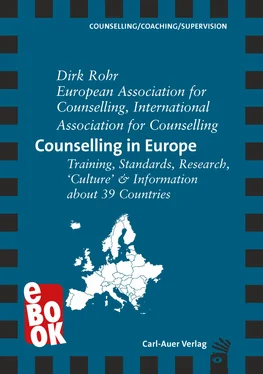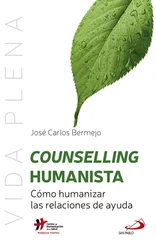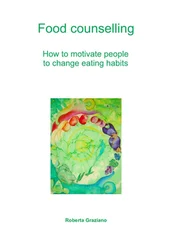• Information disclosed during counselling typically remains confidential to that professional relationship except when otherwise negotiated.
Confidentiality is an essential ethical requirement, and without high levels of confidentiality, counselling may be frustrated by the client’s lack of trust and sense of safety. However, confidentiality is not absolute because counsellors need to consider the laws and the constraints of their society and their professional roles. Any limitations on confidentiality within the professional relationship should be made explicitat the time of contracting. Any subsequent conflicts with the principle of confidentiality must be handled clearly and openlywith the client at the time of disclosure in a way that respects the client’s right to privacy and safety. In circumstances where a breach of confidentiality may be required, the counsellor should endeavour to secure the client’s written and informed consent.
Counsellors need to be open with themselves and with clients about the feasibility of working together in a professional relationship.
The professional relationship defined by an explicit and mutually agreed contract and ends with the contract’s termination. However, specific professional responsibilities continue beyond the termination of the contract.
These include, but are not limited to, the following:
• maintenance of agreed-upon confidentiality
• avoidance of any exploitation of the former relationship
• consideration of any needed follow-up care
Counsellors need to be clear about any responsibilities, including those outlined above, involved in the professional relationship, which may conflict with the client’s interests. Any duties to third parties must be explicit at the pre-counselling contract stage or as soon as they become a counselling factor. For example, a relationship can be the result of a counselling request by indirect assignment. In such cases, the counsellor needs to be explicit with both parties about the accountability involved to both the direct counselling client and the party requesting help, e. g. an employer who makes a request for counselling for an employee with burnout.
Research
Research into counselling should be by competent researchers who are familiar with the values of counselling. It requires full consideration of ethical issues and concern for the dignity and welfare of the participants. Researchers have a responsibility to behave in ways that are as consistent as possible with the core values of counselling. Research that violates those values is unethical. The fully informed consent of all parties is a fundamental ethical imperative in experimental research.
Conflicts between Ethical Principles
The complexity of ethical issues makes it likely that different moral principles and clauses within the Charter may cause specific circumstances. Sometimes, the Charter provisions may also clash with the expectations of, for example, Legal Professionals. By their very nature, the resolution of ethical dilemmas is not simple.
In particular, in cases when counsellors face a conflict between ethical principles, the intention should be to strive for the greatest good and the least harm for the client.
Members of EAC must comply with this Charter and must not work to lower ethical standards than those defined in this Charter. However, National Associations and Organisations are free to place higher stringent standards on their Nation-states members.
2.5 Accredited Membership
This membership category is open to EAC members awarded the European Certificate of Counsellor Accreditation. It is annually renewable and reviewed every five years. The member can apply for reaccreditation according to the guidelines of the EAC.
2.6 Core Competencies for Counsellors in Europe
Accredited European Counsellors will demonstrate their ability to:
• Continually develop multicultural awareness;
• Recognise cultural differences between counsellor and client at cultural /country level, and acknowledge and address these in a non-judgmental way;
• Adjust their style of communication to match that of the client;
• Set, maintain and review the appropriate structural and relational boundaries at different stages of the counselling process;
• Establish a contract or an explicit mutual working agreement regarding the aims of the counselling work;
• Develop awareness of the context in which the client and counsellor are functioning to create the best possible conditions; develop an understanding of how counselling influences the context;
• Address the client’s issues in ways that contribute to the counselling process;
• Refine the aims of the counselling to move it forward;
• Facilitate the movement toward the client’s insight, development and change;
• Facilitate the transfer of learning from the counselling relationship to the client’s everyday life;
• Review the counselling process in terms of the client’s experience;
• Bring the counselling to closure in a way that recognises the experience for both the client and the counsellor;
• Work consistently within a clear theoretical orientation;
• Recognise limits and boundaries, both professional and personal;
• Recognise client issues that need the attendance of another professional and refer the client appropriately;
• Be consistently aware of ethical issues and an appropriate approach to moral dilemmas;
• Evaluate the counselling process in terms of your learning as a counsellor;
• Recognise the need for ongoing Supervision and act accordingly.
Course Work
Refers to in-depth training in counselling, enabling the trainee counsellor to develop the core competencies outlined in the section entitled Training Programme. At best, this will generally be an integrated training within an established training programme, which employs an external examiner, has an appeals procedure and is recognised by the local National Association for Counselling. This training may include any primary academic degree already obtained.
Personal Development
The following are general guidelines for each training programme to be implemented according to their specific theoretical approach. The purpose of this component is to facilitate:
• Awareness of personal issues in work and how these might influence the counselling process;
• Ongoing development in:
 intellectual understanding and knowledge
intellectual understanding and knowledge
 emotional maturity
emotional maturity
 acceptance of self and others;
acceptance of self and others;
• Experience of being in the client role, wherever possible within a formal professional counselling relationship;
• Development of a global perspective of self-concerning the world.
Counselling Practice
It will typically take place within a formalised and contracted counselling arrangement.
Training Requirements
• 450 hours of course work including personal development, theory and skills; A minimum of 50 hours of individual therapy consistent with the model of Practice;
• 100 hours of supervised counselling practice during training.
• An extra 450 hours under Supervision after qualification while working towards Professional accreditation.
The above will usually complete in a minimum of 3 and a maximum of 6 years.
Читать дальше

 intellectual understanding and knowledge
intellectual understanding and knowledge










